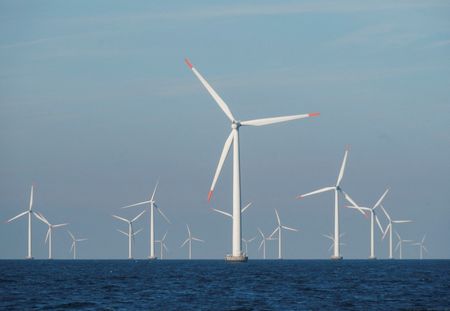TRENTON, NJ — A heated back-and-forth between New Jersey Assemblyman Paul Kanitra and Board of Public Utilities President Christine Guhl-Sadovy unfolded during a recent hearing, as Kanitra questioned the state’s energy priorities and investments in offshore wind.
“If I had to pick only one, what would matter more to you? Ensuring that energy costs are as low as humanly possible for the rate payers of New Jersey or achieving your climate change goals?” Kanitra asked to open the exchange.
Guhl-Sadovy responded that ensuring reliability was her top concern. “I think that we can both prioritize the environment and also energy costs as we have been doing in this administration,” she said. “They’re both important.”
Kanitra pressed further, asking what source of energy was more reliable. Guhl-Sadovy acknowledged that natural gas was more consistent but argued that wind energy with storage also provides dependable power.
The Assemblyman challenged the state’s investment in offshore wind, claiming costs could reach $150 per megawatt hour compared to $10–$15 for natural gas. Guhl-Sadovy responded,
“The goals of the administration are to move to clean energy, and the environment is very important, as is public health.”
“That’s perfect,” Kanitra replied. “It really doesn’t have anything to do with keeping ratepayer costs low. It’s an ideological goal.” He then asked for the cost of transmission lines for offshore wind projects like the Larrabee facility. Guhl-Sadovy said she would need to look it up, adding that transmission is important for all energy sources.
Kanitra claimed the cost was around $2 billion and criticized the administration’s continued reliance on offshore wind, which he described as a “dying industry.” He referenced the financial collapse of offshore wind developer Ørsted, which he claimed occurred before any policy shifts by former President Trump.
Guhl-Sadovy maintained that future federal support would be key. “We hope that the Trump administration will continue to support offshore wind because of the generation resource that’s available,” she said.
Kanitra accused the administration of deflecting blame, even as wind costs increased despite subsidies. “We’re still blaming President Trump,” he said. “You still would be putting taxpayer dollars behind offshore wind instead of natural gas and some of the lower-cost energy sources, right?”
Guhl-Sadovy argued that new generation is necessary to stabilize costs. “Without new generation, ratepayers are experiencing significant cost increases,” she said.
In closing, Kanitra criticized the state’s rejection of proposals to repurpose the former Oyster Creek nuclear plant. “It just seems like it’s all a little contradictory to me,” he said, blaming both the BPU and the Murphy administration.
